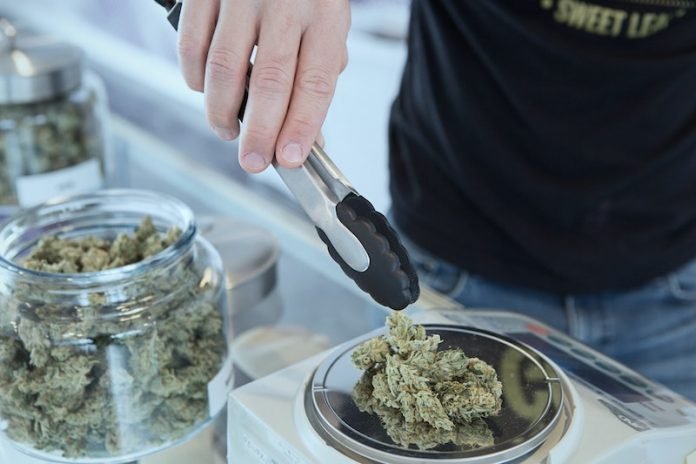
In a new study, researchers found recent cannabis use is linked to extremes of nightly sleep duration—less than 6 hours or more than 9 hours.
This pattern was even more pronounced among heavy users—those using on 20 out of the previous 30 days.
Cannabis use in North America continues to increase, with around 45 million adults in the U.S. reporting this in 2019, which is double the figure reported in the early 2000s.
Cannabis has become popular as a sleep aid, particularly as the prevalence of sleep deprivation and insomnia has increased.
Only two-thirds of Americans get the recommended 7-9 hours of sleep every night, and almost half report daytime sleepiness every day.
In the study, the team wanted to see if cannabis use might be linked to nightly sleep duration in a nationally representative sample of US adults (aged 20-59).
And they wanted to know if respondents reported difficulty falling asleep, staying asleep, or slept too much in the preceding 2 weeks; whether they had ever consulted a doctor about a sleep problem; and whether they regularly experienced daytime sleepiness on at least 5 of the preceding 30 days.
Some 25,348 people responded to the surveys between 2005 and 2018, but the final analysis is based on 21,729 who answered all the questions, representing an estimated 146.5 million US adults.
A total of 3132 (14.5%) respondents said they had used cannabis in the preceding 30 days. Recent users were more likely to report not sleeping enough or sleeping too much.
They were 34% more likely to report short sleep and 56% more likely to report long sleep than those who hadn’t used cannabis in the preceding 30 days, after accounting for potentially influential factors.
And they were also 31% more likely to report difficulty falling asleep, staying asleep, or sleeping too much in the preceding 2 weeks, and 29% more likely to have discussed a sleeping problem with a doctor.
Further analysis found that moderate users, defined as using on fewer than 20 out of the past 30 days, were 47% more likely to sleep 9 or more hours a night compared with non-users.
Heavy users, defined as using on 20 or more out of the preceding 30 days, were 64% more likely to experience short sleep and 76% more likely to experience long sleep compared with non-users.
The team says the increasing prevalence of both cannabis use and sleep deprivation in the population is a potential cause for concern.
If you care about sleep, please read studies about lack of sleep in middle age may increase dementia risk, and findings of the herb that may help you sleep well at night.
For more information about sleep and wellness, please see recent studies about should you take melatonin supplements for good sleep and results showing that to have a good night’s sleep, avoid these 3 things in your dinner.
The study is published in the journal Regional Anesthesia & Pain Medicine.
Copyright © 2021 Knowridge Science Report. All rights reserved.



